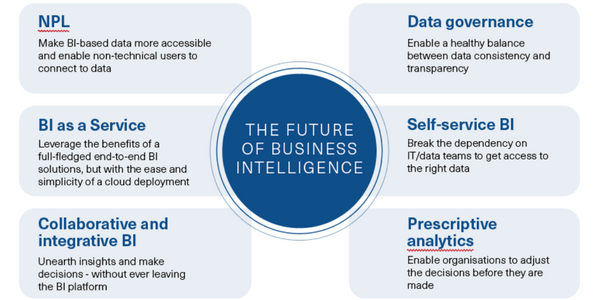
IMHO: Wasted days and wasted bytes

OPINION: Boards need to ask if their companies are getting best value out of their data because research shows most enterprise data aren’t being used. This despite the vast sums being invested in ever more data collection and analysis.
I talked about how dozens of executives told us how their organisations are ‘drowning in data’ in my previous article "It's time for better dashboards". One commentator has gone further , saying “CIOs risk being overwhelmed by multiple data sources, multiple tools, and rising expectations from executive teams and end-users alike to find new ways to leverage data-driven insights across the organisation” (IDG 2022). Another noted, ‘data lakes’ are becoming data swamps’ that you can get stuck in (Kumar Goswami).
An IDG Market Pulse report cited sky-high expectations of data as the second of ten big trends in data analytics. Boards and executives know there’s hidden value in their data and expect releasing new insights will unlock operational efficiencies and business growth, with the top benefit identified as better decision-making. It cites Sim Tshabalala, CEO of Standard Bank “In God we trust; everybody else, bring data”.
But there’s a problem. On the one hand:
“companies that productize or commercialize their data are…more valued by their investors…the value of a company’s data is becoming an important element of M&A activity….companies that treat data more as an asset have a market to book value ratio that’s nearly two times higher than market average…investors really favour…companies that are more data savvy, driven, or data product oriented” - Data analytics innovator Doug Laney.
So great value lies in making the best use of your data, but according to a Forrester analyst, 60% to 73% of enterprise data goes unused (Forbes Technology Council report 2022). With the rapid move to the cloud and lots more storage capacity, I wonder if this will get worse before it gets better?
One reason why there seems to be so much ‘wasted days (on data management) and wasted bytes (of data)” is the use of multiple tools. The IDG report claims that “analytics is still the wild west”, noting that 67% of IT leaders say big data analytics is ‘’chaotic” at their organisation. 64% say they use two or more analytics solutions, and these are often scattered across the enterprise causing lots of virtual wheel spinning. Only 31% say they are adept at extracting valuable insights.
A second reason is a disconnect between data scientists and executives, and by extension boards. Commentator Ani Madurkar doesn’t hold back when he says:
“Its incredible how many (data scientists) focus on the depth of mathematical complexity instead of spending time learning the ins and outs of the business and how people make decisions. Data Science is the practice of making data useful, and it will soon be required for practitioners to focus on the actual decisions needing to be taken, changed, or stopped and speak in those terms”.
With the ever-proliferating array of data tools and techniques, he says data types need to develop sales skills to be able to bridge the gap with non-data savvy executives. Gartner suggests CIOs work closely with HR, finance and supply chains to align goals. Executives – and boards – need to lift their data game too. Industry leader Bridget Cogley lays down a wero to business leaders “How can people make an informed choice if we can’t navigate the data and nuance around it?”.
DataRobot “Chief AI Evangelist” is blunt about the certainty of wasting time if you’re not clear about the path to value when investing in data:
“The most successful teams I’ve seen treat (data sciences) like sales, where you can ask them ‘What’s your data science attribution number?’ And I bet if you asked most organizations what that number was, they’re not prepared to answer that. The most impressive organizations have that number.”
One obvious way to extract more value from data is better business intelligence (better board dashboards being a prime example) and there’s some good news on that front. Gartner predict in their Data 2022 report that a third of large organisations will use BI for structured decision making to improve their competitive advantage in the next two years. DataToBiz note that the value of the global BI and analytics software market is projected to be US$17.6 billion by 2024, and Beroe Inc estimate the global BI market to hit US$30.9 billion this year (the difference may be explained by the latter including other activities like DaaS).
The explosion of BI is leading to increasing democratisation of data analytics, meaning executives (and directors) can more readily pursue their own inquiries more directly. The infographic below outlines some of the ways BI will have an impact:

Kashyap Vyas (IT Business Edge 2022) has a message relevant for boards, arguing that the need for live data analysis will expand in parallel with expanding volume, variety and velocity of data and “those trends will put enterprises under tremendous pressure to make efficient data management their highest priority” (emphasis mine).
You still hear Freddy Fender’s Wasted Days and Wasted Nights at BBQs or the beach over summer, but hopefully the era of wasting data won’t have such longevity. Its time for boards to get serious about getting value from data.
About the author
Kevin Jenkins CMInstD is a founder of Martin Jenkins and has over 30 years’ experience as an advisor to business, not-for-profits and government. He works with boards and executives to help them clarify their strategic direction and make the best choices to achieve their purpose and goals.
The views expressed in this article do not reflect the position of the IoD unless explicitly stated.
Contribute your perspectives and expertise on an area of governance to the IoD membership and governance community. Contact us mail@iod.org.nz



